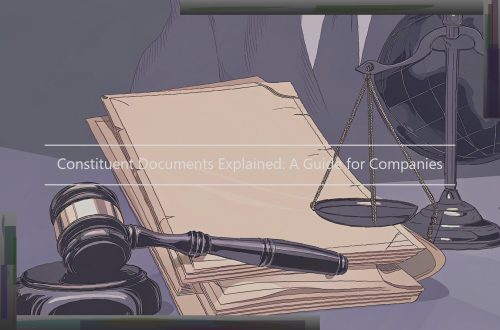The Basics of Express Agreements in Real Estate Transactions
Definition of Express Agreement
Express Agreements constitute the vast majority of real estate transactions. Simply speaking, an Express Agreement is a contract that is entered into where all the principal terms have been directly communicated between the parties and expressed through clear language. Failing to be informed as to the terms of the Express Agreement will not free a party from his contractual obligations.
Typically there are two different types of express agreements. The first is an agreement that can be laid out pursuant to a written instrument. Most notably, these written instruments are typically offered under the Statute of Frauds.
The second type of express agreement is oral . An oral agreement which is meant to be performed within one year of its making is not deemed invalid although it is preferable to have a written agreement because it ensures that all of the terms and understanding between the parties have been expressed.
Express Agreements cannot be easily implied. Nor, can they generally be created upon the blind or careless acceptance of the terms of another party. An Express Agreement must be understood by both parties. This means a mutual assent or meeting of the minds. If one of the parties is not aware of the terms of an agreement, he may not be bound by it.
All Express Agreements must state certain principal terms such as a price and a description of the property. It must also require adequate consideration. An Express Agreement will be invalid if it contains voidable terms or lacks essential elements, such as subject matter, consideration or capacity.

The Legal Significance of Express Agreements
Express agreements are of utmost importance in real estate transactions because they provide the legal framework within which the parties to the transaction agree to be bound. Coherent, clear and well-drafted express agreements protect the interests of the parties and ensure that the process proceeds smoothly. Relevant provisions contained in express agreements such as how legal costs are to be handled or the deliverables of the other party are an important setting of expectations framework for the parties.
In the absence of an express agreement setting out the rights and obligations of the parties, the parties will rely on the performance of the transaction in accordance with implied duties and rights of the parties. Implied duties often do not receive much attention and care from the parties. For example, all parties have a duty to act in good faith. In a commercial transaction this duty may be subject to a higher standard of care than in a consumer agreement. These implied duties do not necessarily have harmonious legal implications. A party may rely on an implied duty even if it is contrary to a specific express agreement. This is particularly the case where a specific representation has been made and relied upon to the detriment of the party relying on the representation. In other circumstances, the express agreement may be requisite and take precedence over the implied duties.
This is important in the case of a sale of real property in South Africa. The agreement of sale in terms of the Alienation of Land Act 68 of 1981 provides its own framework for the sale of immovable property. In terms of the Act any contract for the sale of property is voidable unless it is in writing and signed by the parties. A sale agreement which does not comply strictly with the Act will be unenforceable.
The fact that the Act stipulates that a sale agreement of property must be in writing and signed by the parties does not however have to be precedent to the express agreement deal being recorded. An oral agreement for the sale of property may still be binding on a party who has agreed to it but who also wants to rely on the written agreement under the Act as a defence to the oral agreement. An oral agreement will be enforceable if the party wishing to rely on the oral agreement had no intention of reducing the agreement to writing, the parties considered the agreement settled, all the aspects of the agreement were settled and the signing of the written agreement was merely a formality.
Elements of the Express Agreement
The key elements of an express agreement that comes together in real estate transactions are the same as for any other contract. You need an offer, acceptance, consideration, mutual consent, and capacity. We can think through all of this in the context of an example that illustrates the process and offers an opportunity to consider important factors.
Jerry is a licensed real estate agent, Rick is a developer, and they have just agreed that Jerry will help sell condos in a new multi-family development Rick is planning to build. They have talked about this idea more than once and discussed it in some detail, but they never put pen to paper. Does Jerry already have a valid real estate sales contract with Rick?
Probably not, because:
For civil law purposes, it is generally held that an offer is an expression of willingness to contract on specific terms. It must be communicated to the offeree with the intention it will become binding on the offeror as soon as it is accepted by the intended offeree.
Because Jerry was Rick’s agent, he could have bound Rick just by signing the contract, or so the argument could be made, because that is what agents do. However, even in these circumstances, the idea that the agent needed actual authority from the principal to enter into a contract on the principal’s behalf makes sense in the case of a real estate transaction. The developer has, in fact, the right to control the agent’s actions, but the developer must express the terms of the agreement and establish the agent’s authority with respect to them. In the absence of clear and convincing evidence, because there is no contract until the principal agrees to be bound, the agent could only bind himself or herself to the proposed terms when entering into a written contract.
In short, mutatis mutandis, Rick never offered Jerry the right to sell condos on his behalf. We could add that the offer to accept by the principal himself, instead of by the agent, was not the type of agreement to be entered into by the agent in the course of performing his/her job duties. Regardless, the point is that there was no material assent—express or implied—of the principal to the contract, and therefore no contract entered into.
For the same reasons, our query cannot be answered "yes." Based on what has been stated, we see that Rick never made an agreement directly with Jerry regarding his role in the sale of the new condos. This was so because Rick apparently never approved the agreement, and thus, no contract was entered into, nor was it the case that he could have legitimately objected to the entry into the agreement by Jerry as the agent.
See above, and in addition, the idea of contractual capacity. As we know, Chantal is a child. Accordingly, she had full legal capacity as a minor to enter the agreement. However, if we go back to the first part of our example, we can remember that Rick is a competent adult. Because he is an adult, he therefore has legal capacity to enter into a contract. However, what it will take to form a valid contract is for the parties to agree to the terms, and under such circumstances, considering the roles of Jerry and Rick as a real estate agent and developer in their business relationship—and assuming all other parties to the written agreement had legal capacity—there is a strong argument in favor of giving binding effect to the written agreement as between Jerry and Rick, if not also to the third parties who may be involved.
An express agreement is a mutual agreement that requires offer and acceptance of the terms, or other elements under Missouri law to form a contract. In the absence of material assent of one party, there is no contract.
Common Form of Express Agreements in Real Estate
There are many different types of express agreements that are frequently used in the real estate world. Purchase agreements are an incredibly common type of express agreement, as they are the contracts that dictate all of the details of the sale of a property, including financial, physical and other conditions of the sale, such as physical inspections, mortgage contingencies, disclosures that must be provided by the seller, and title requirements. Lease agreements, which can be either oral or written (but, as a practical matter, are almost always written) are agreements entered into between a landlord and a tenant in describing the terms of the rental of a property, including the length of occupancy, rental payments and other conditions imposed on the tenancy.
A third type of express agreement that is frequently used in the real estate industry is the listing agreement, which is an agreement entered into between a property owner and a real estate broker in which the owner retains the services of the broker to market the property for sale. Sometimes these listings involve an exclusive right to sell, whereby the broker earns a commission regardless of who sells the property. In other cases, the listing is not exclusive to a broker and the owner tries to sell the property on their own, as well as giving a broker the ability to market the property.
Creating an Effective Express Agreement
When drafting express agreements in the context of real estate transactions, there are some best practices which can help you end up with a document that is clear and effective at doing what you intend. With respect to general best practices for real estate contracts, consider:
Above all else, whatever these best practices are, make sure that your expressed intentions for the contract (what you do want it to say) are clear and unambiguous. If an intended term is missing or unclear , state it; if it’s overly complicated or ambiguous, don’t say it, or say it more simply.
In this context, legal counsel can be an indispensable asset. It pays to speak to your attorney every step of the way in terms of what you want accomplished with your express agreement, how you want to do it, and make sure that it is worded in an intentional, organized way. In considering the use of express or implied agreements in real estate, discussing your needs with legal counsel can help you avoid making major mistakes.
Dispute Resolution for an Express Agreement
The most common disputes arising out of express agreements involve breaches of contract. These may take the form of failure to pay rent, permite or other fees, breach of warranties or representations (both with respect to the premises and with respect to third parties), failure to list a property, to sublet or assign, and/or any other terms of the contract. Both landlords and tenants can assert claims for breach of contract against the other. Tenants typically have the benefit of statutory protections against self-help or the attachment of real property and may have their own claims against the landlord for interference with their quiet enjoyment. Landlords, on the other hand, typically have the benefit of a materialman’s lien. A landlord may be entitled to recover its legal fees and attorney’s fees in some circumstances. Where appropriate statutory protection exists, the federal Fair Housing Act may provide a basis for claims against landlords (and multiple listing services) for discrimination. Landlords may also be able to bring claims for libel, slander and interference with prospective economic advantage against their tenants in appropriate circumstances. Parties to express agreements may submit their disputes to arbitration, if they have so contracted, or by agreement of the parties or court order. In some cases, courts may compel arbitration pursuant to California Code of Civil Procedure §1281.2, if an arbitration agreement exists or the parties have agreed to arbitrate. Mediation and other forms of alternative dispute resolution may be appropriate as well.
Cases of Express Agreements in Real Estate
The enforcement of express agreements is consistently demonstrated in real estate through the many court cases that feature examples of explicit agreements in contracts or leases. In one case, several partners formed an oral agreement for an apartment building purchase in Minneapolis. Eventually, the partnership broke apart, and the partners separated the property-based on their respective contributions. However, the terms of that agreement were disputed and went to court. Their oral agreement was held to be valid by the court, and judicial dissolution followed.
Another case exemplified the importance of a written agreement. In it, two individuals orally agreed to enter into a joint venture for the purchase of some other real estate. The individual who purported to be the real estate broker maintained that a commission was to be paid to him, as stipulated in that oral agreement. The counter-party argued that the agreement was void under the statute of frauds as it was tied to a real estate sale. The court converged on a crucial point as the statute of frauds depends on whether a contract is connected with the sale of real property. The court stipulated that the joint venture agreement was"merely collateral to the sale of real estate itself" and was not to be governed by the statute of frauds.
Express Agreements of the Future
One notable future trend is the growing importance of technological innovations such as digital contracts and smart contracts. Digital contracts are electronic versions of traditionally paper-based agreements, while smart contracts are self-executing contracts with the terms of their agreements directly written into lines of code. Currently, while most real estate contracts are paper-based with physical signatures, the rapid shift towards digitization will push forward the necessity and implementation of digital contracts . Smart contracts present an exciting prospect for expressed agreements in the real estate sector by allowing for hands-off, automated execution of contract terms after certain conditions are met, without the need for third-party user involvement. While these innovations face risk of cybersecurity vulnerability, technological implementation will undeniably streamline the transaction between parties and may reduce costs associated with traditional contracting processes.




